Deep in the hottest days of summer, it’s not hard to feel a little sorry for the dogs in your life; you have to imagine that the sticky weather must be tough on those of us who come complete with a built-in fur coat.
Not surprisingly, many of our canine companions seem to enjoy whiling away the accurately named “dog days” with naps in the A/C and plenty of these delicious and nutritious frozen dog treats.
Of course, in between naps and snacks, lots of dogs are well-known for beating the summer heat by jumping into the ocean or running through the garden hose to cool down.
Most of don’t think twice about setting up the hose or sprinkler for recreational purposes on a hot and icky summer day. If you aren’t near a beach or lake, kids and dogs alike love the opportunity to cool off in the refreshing spray.
What many of us don’t realize is that sprinklers, hoses, and even ordinary swimming can hide a huge risk for our beloved dogs: the threat of aspiration pneumonia.
Read on below to learn how to spot the signs, and how to protect your dog this summer!
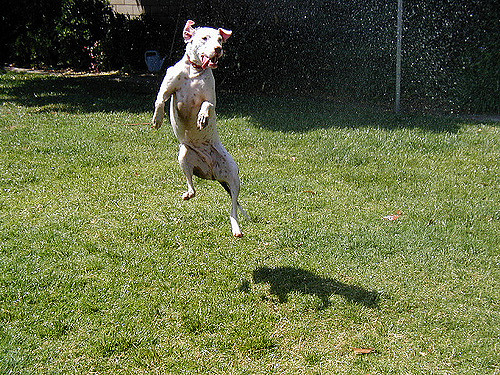
When dogs play in hoses and sprinklers, they're at risk from the pressurized flow of the water.
Unlike their ordinary drinking water, hose or sprinkler water is obviously designed to flow outward and with some force.
While this definitely makes it better for reaching the far reaches of your garden, it can mean that dogs accidentally inhale or "aspirate" some water when they play in the water.
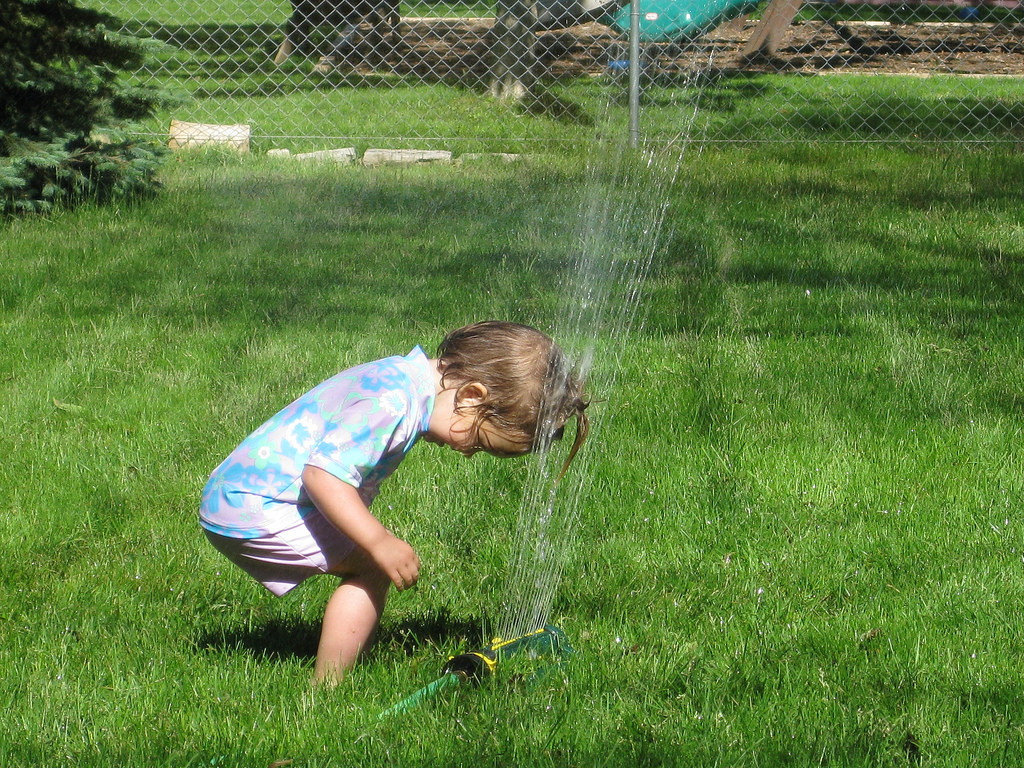
After all, sprinklers are a great summertime setup that kids and dogs alike enjoy splashing around in, but keep in mind that it's an "off-label" use.
These devices are designed for watering your garden, and haven't been assessed and determined to be dog-safe like most ordinary dog toys.
Dogs, not known for their self-preservation instincts, will often keep playing even if the sprinkler is starting to make them feel sick.
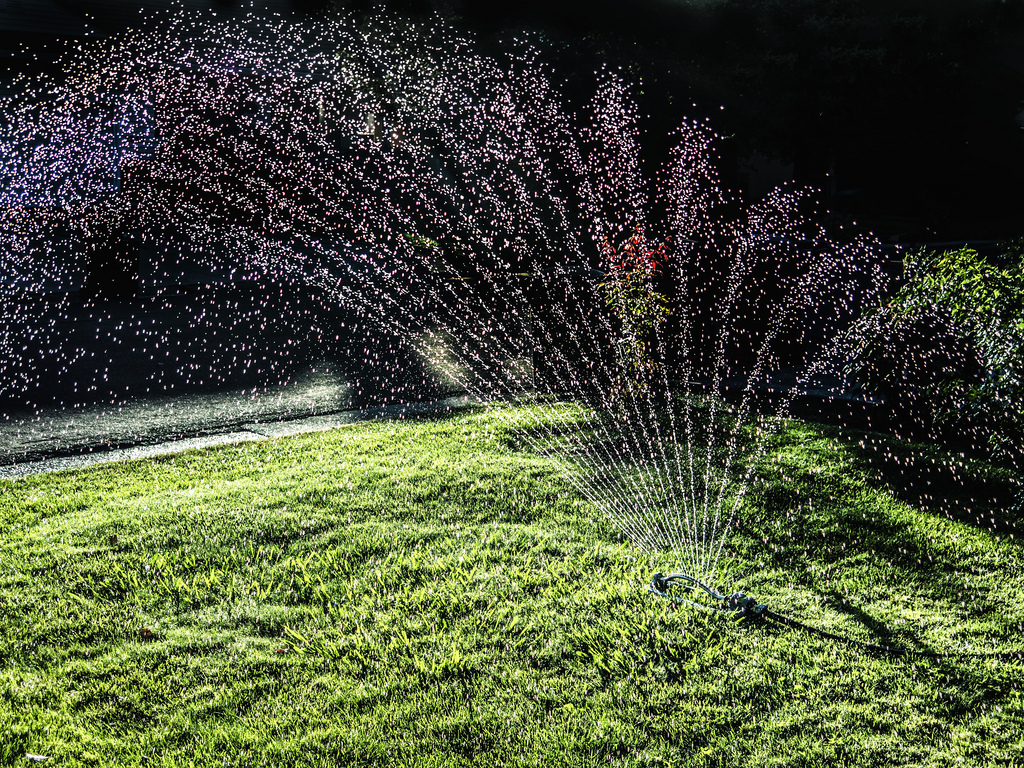
The problem is that, in addition to simply running through the spray, most dogs will try to stalk and hunt the sprays of water, particularly on a moving sprinkler or hose.
It's an adorable game, but the process or biting and leaping head-on into the spray means that it's pretty easy for a dog to inhale some of the water that makes it through.
Most will be swallowed, but enough might go down the wrong way, and end up in the pooch's airway.
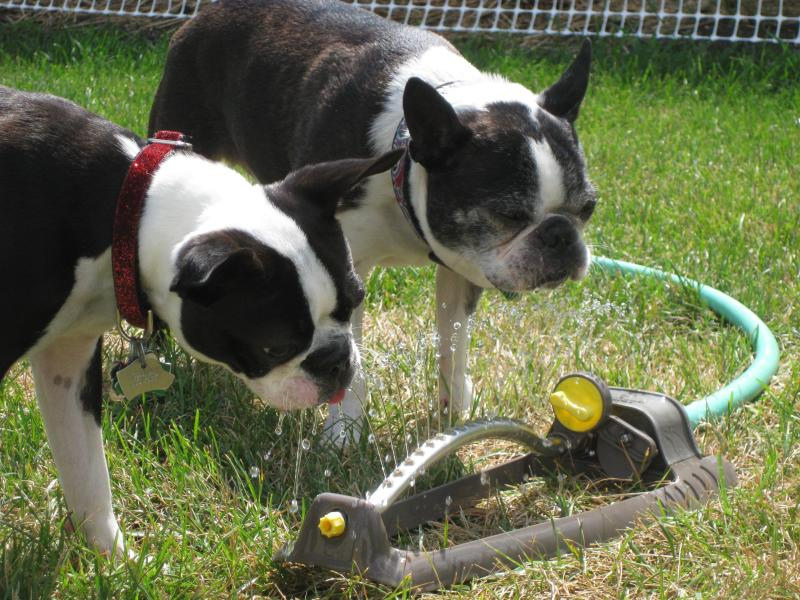
This is especially true of brachycephalic dogs, or dogs that have been bred to have a shorter snout.
Brachycephalic breeds include pugs, bull dogs, and some spaniels. In fact the term, meaning "short headed," can apply to any dog that might be characterized as having a flat face.
While these breeds of dogs are undoubtedly adorable, they have short airways that put them at heightened risk for all types of respiratory problems.
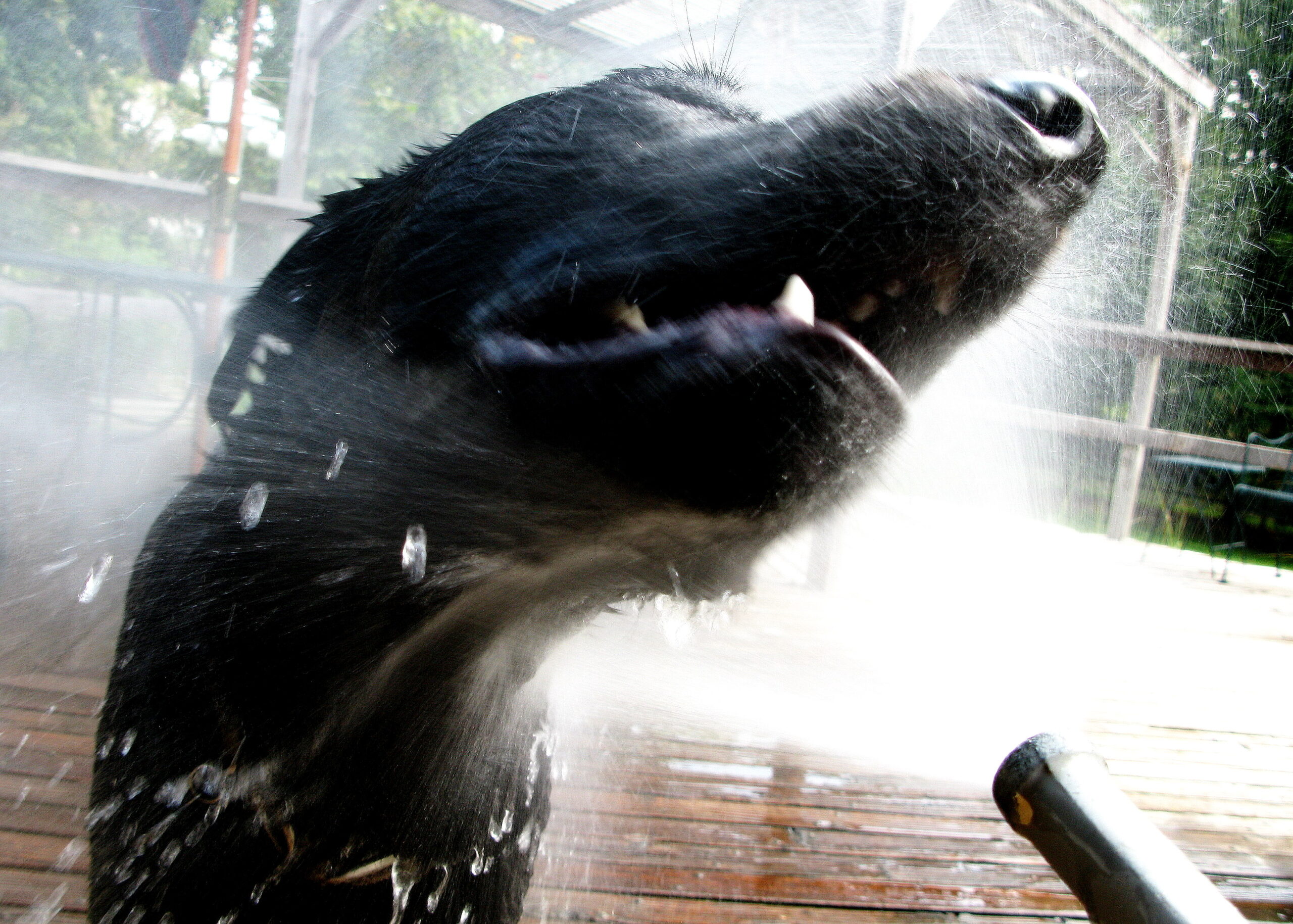
Now, this doesn't necessarily mean your dog can never ever play in the water.
Bodies of water are usually fine, especially if your dog is an experienced swimmer or has water-dog heritage.
If your pup isn't much of a swimmer or is still learning, put them in a dog life vest to avoid panic and keep them from biting the water, which can also cause them to aspirate water.
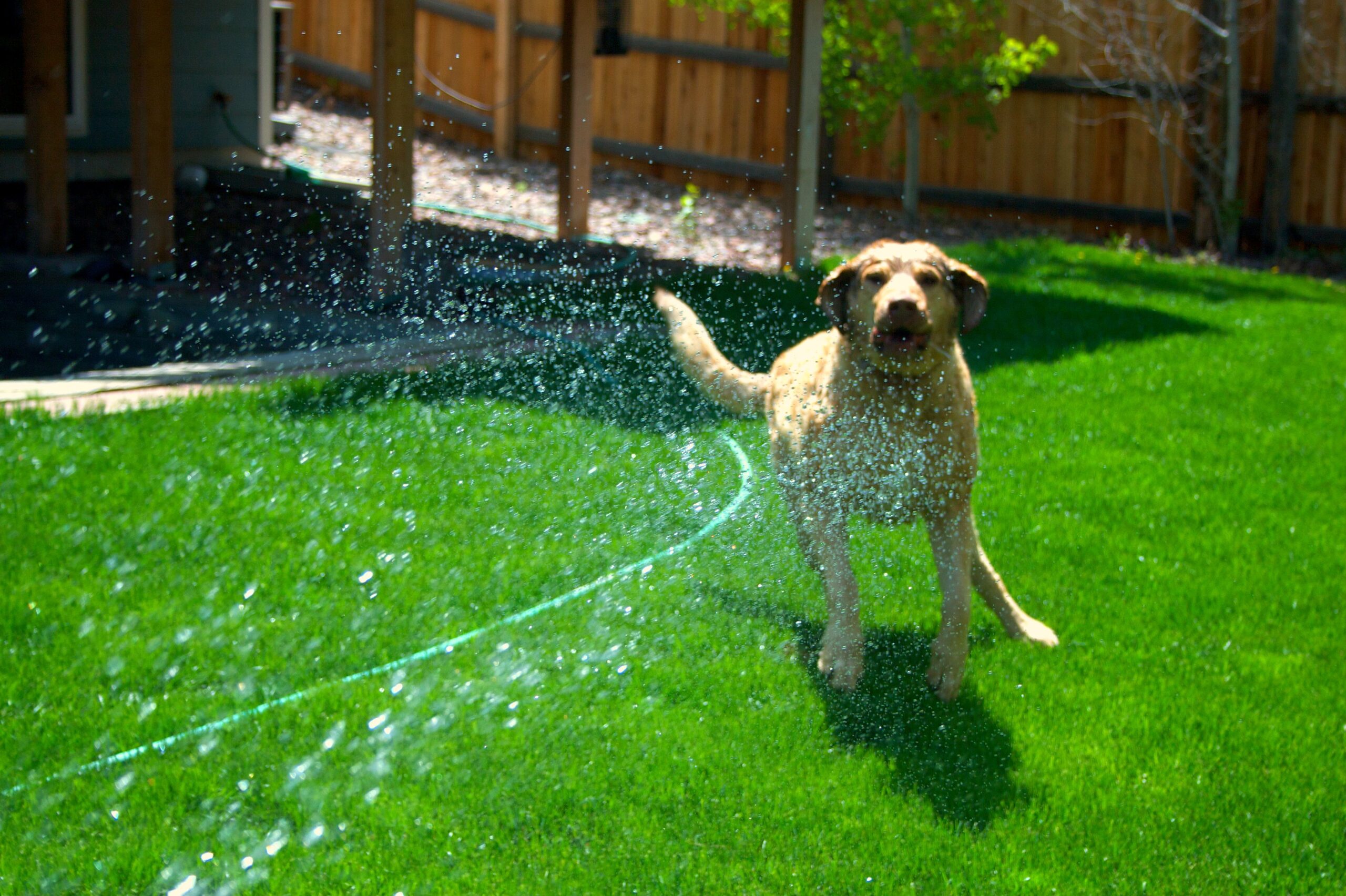
As for hoses and sprinklers, it's probably a good idea to just use your best judgment.
If your dog loves the hose, there's probably no harm in running the water over her back or belly, and keeping the stream far away from her face.
With sprinklers, especially ones that you need for your lawn, you may simply want to try to keep your dog away from the water while it's flowing.
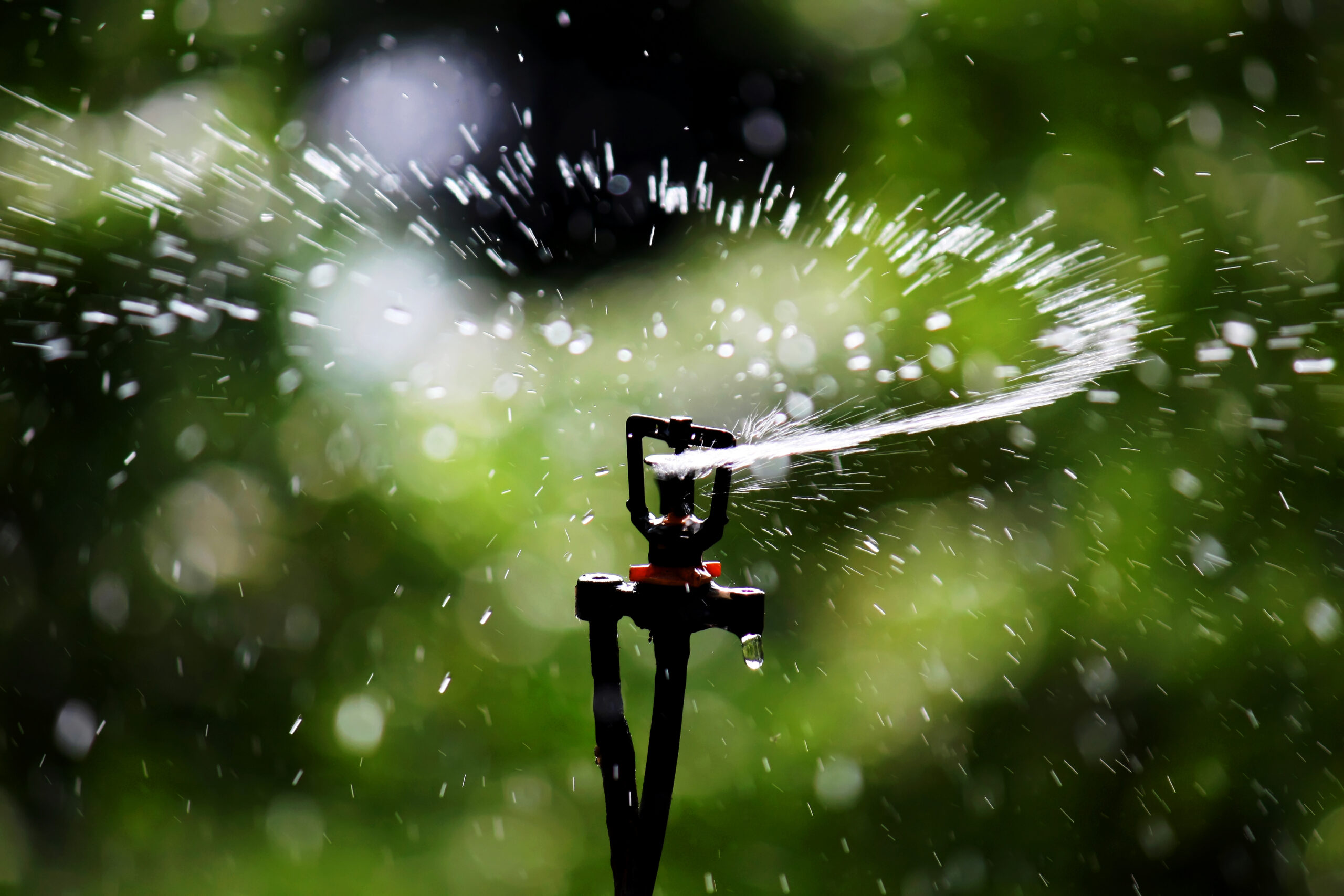
If your dog does get into a pressurized water source, don't panic; most of the time, it won't cause a problem.
Just keep an eye on your pooch, and watch for gagging, coughing, or sputtering, all signs that some liquid went down the wrong way.
Other signs of aspiration include a bluish tint to the lips or gums, noisy breathing, lack of energy, and loss of appetite. If you notice any of these signs, call your vet and schedule a checkup.
What do you think about letting your dog play in the sprinklers? Let us know in the comments, and don't forget to SHARE this important info with other dog owners!




